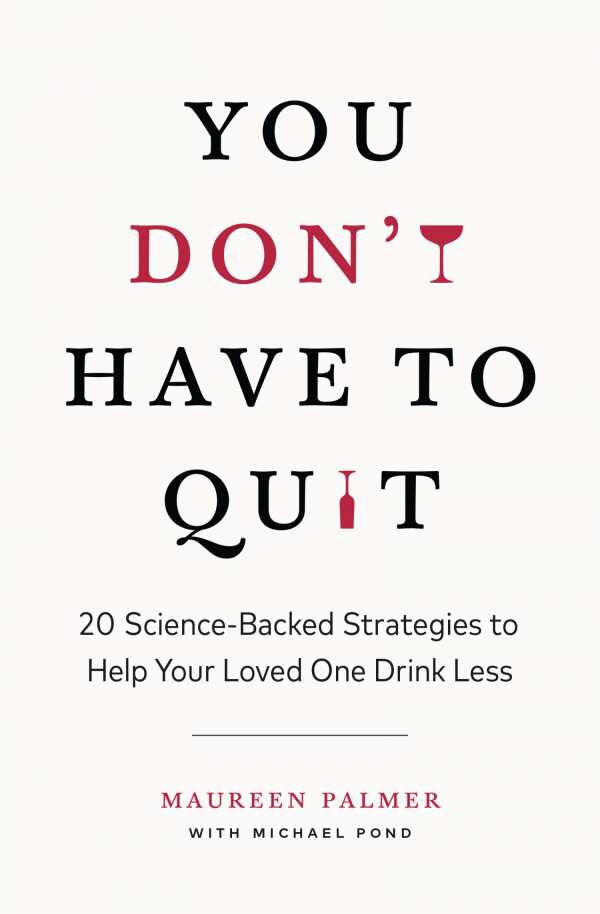You Don't Have to Quit
20 Science-Backed Strategies to Help Your Loved One Drink Less
A comprehensive guide for recovery allies, You Don’t Have to Quit is flush with scientific, therapeutic, and medical information alongside its personal stories of helping a partner manage his alcohol use disorder.
Maureen Palmer’s self-help guide You Don’t Have to Quit offers holistic and clinical support in the management of alcohol-related addictions.
The book continues Palmer’s earlier work with investigating alcohol use disorders, or AUDs, fed by the urgent reality that “roughly five hundred Americans die … each day from alcohol use.” Aimed at the loved ones of those who are addicted, it asserts, “You can learn to help your loved one drink less and, at the same time, learn new skills designed to make you feel better, too.” Arguing that a significant reason for alcohol addiction is society’s longstanding acceptance of drinking culture, it critiques “wine mom” book clubs, after-work gatherings, and cultural emphasis on cocktails and craft beer. It also acknowledges that COVID-19 effected a vast spike in alcohol sales. Deconstructing the linkage of alcohol to camaraderie, enjoyment, and sophistication, it spotlights the role of “Big Alcohol” in cross-generational branding on a global scale. It also explores how excessive alcohol use can be triggered by stress, insomnia, or the need to escape reality, in addition to genetic factors. And it argues that alcohol overuse should be managed like a chronic condition, akin to diabetes or hypertension.
The book includes considerable scientific, therapeutic, and medical information alongside its personal stories of helping a partner manage his alcohol use disorder. Pharmaceutical dependence reduction options like gabapentin and naltrexone are detailed, while the natural alternative of omega-3 supplements is explored for its potential to prevent relapse and promote healing of the brain. Targeted strategies, including Motivational Interviewing and CRAFT (Community Reinforcement and Family Training), are presented as alternatives to “tough love” and zero-tolerance approaches. Incremental “harm reduction” goals are also recommended, including “Sober Sundays” and decreasing the alcoholic content of each drink.
The book maintains a balance between encouraging empathy for alcohol-addicted loved ones and setting defined self-care boundaries like avoiding abusive backlash and endangerment. There’s advice against accepting the old labels of enabler, victim, and codependent and encouragement toward a pragmatic approach informed by “kindness and compassion.” Advice for handling detox sessions, monitoring daily activities and hidden alcohol stash spots, and channeling frustration into constructive dialogue is included in this comprehensive guide for recovery allies.
You Don’t Have to Quit is a reasoned, candid, and caring alcohol addiction resource that proposes radical new approaches to recovery.
Reviewed by
Meg Nola
Disclosure: This article is not an endorsement, but a review. The publisher of this book provided free copies of the book and paid a small fee to have their book reviewed by a professional reviewer. Foreword Reviews and Clarion Reviews make no guarantee that the publisher will receive a positive review. Foreword Magazine, Inc. is disclosing this in accordance with the Federal Trade Commission’s 16 CFR, Part 255.

